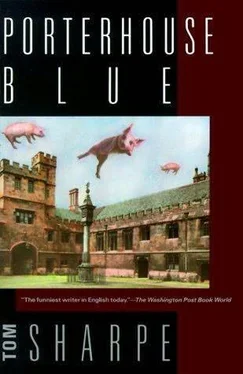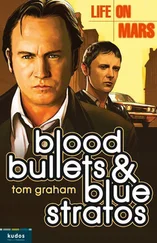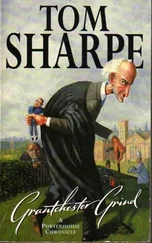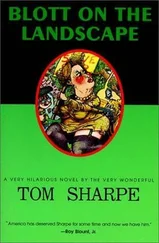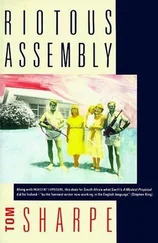“Like selling Rhyder Street I suppose,” said Skullion.
“Well, there’s that and…”
“Wouldn’t have done that in Lord Wurford’s time. He wouldn’t have stood for it.”
“We simply haven’t got the money to do anything else,” said the Bursar lamely.
“It’s always money,” Skullion said. “Everything gets blamed on money.” He got up and walked to the door. “Doesn’t mean you’ve got the right to sell my home. Wouldn’t have happened in the old days.” He went out and shut the door behind him. The Bursar sat at his desk and stared after him. He sighed. “I’ll simply have to write him a letter,” he thought miserably and wondered what it was about Skullion that was so daunting. He was still sitting there ten minutes later when there was a knock on the door and the Head Porter reappeared.
“Yes, Skullion?” the Bursar asked.
Skullion sat down again on the wooden chair. “I’ve been thinking about what you said.”
“Really?” said the Bursar, trying to think what he had said. He had been under the impression that Skullion had done all the talking.
“I’m prepared to help the College,” Skullion said.
“Well, that’s very good of you, Skullion,” said the Bursar, “but…”
“It isn’t very much but it’s all I can do,” Skullion continued. “You’ll have to wait till tomorrow for it till I’ve been to the bank.”
The Bursar looked at him in astonishment.
“The bank? You don’t mean…”
“Well it’s college property really. Lord Wurford left it to me in his will. It’s only a thousand pounds but if it…”
“My dear Skullion, really this is… Well, it’s extremely good of you but I… we couldn’t possibly accept a gift from you,” the Bursar stuttered.
“Why not?” said Skullion.
“Well… well it’s out of the question. You’ll need it yourself. For your retirement…”
“I ain’t retiring,” Skullion said firmly.
The Bursar stood up. The situation was getting quite beyond him. He must take a firm line.
“It’s about your retirement that I wanted to see you,” he said with a determined harshness. “It has been decided that it would be in your own best interest if you were to seek other employment.” He stopped and stared out of the window. Behind him Skullion had sagged on the chair.
“Sacked,” he said, with a hiss of air that sounded as if he were expiring with disbelief.
The Bursar turned reassuringly.
“Not sacked, Skullion,” he said cheerfully. “Not sacked, just… well… for your own sake, for everyone’s sake it would be better if you looked around for another job.”
Skullion stared at him with an intensity that alarmed the Bursar. “You can’t do it,” he said, rising to his feet. “You’ve got no right. No right at all.”
“Skullion,” the Bursar began warningly.
“You’ve sacked me,” Skullion roared, and his face which had been briefly pale flushed to a new and terrible red. “After all these years I’ve given to the College you’ve sacked me.”
To the Bursar it seemed that Skullion had swollen to a fearful size which filled his office and threatened him. “Now, Skullion,” he began, as the Porter loomed at him, but Skullion only stared a moment and then turned on his heel and rushed from the office slamming the door behind him. The Bursar subsided into his chair limp and exhausted.
To Skullion, stumbling blindly across the Court, the Bursar’s words were impossible. Forty years. Forty-five years he had served the College. He reeled into the Screens and stood clutching the lintel of the Buttery counter for support. The sense of being needed, of being as much a support to the College as the stone lintel he clutched was to the wall above it, all this had left him or was leaving him as waves of realization swept over him and eroded his absolute conviction that he was still and would forever be the Porter of Porterhouse. Breathing deeply Skullion heaved himself on down the steps into the Old Court and walked woodenly towards the Porter’s Lodge and the consolation of his gas fire. There he brushed past Walter and sat slumped in his chair, unable even now to accept the enormity of the Bursar’s words. There had been Skullions at Porterhouse since the College was founded. He had Lord Wurford’s word for it and with such a continuity of possession behind him, it was as though he stood upon the edge of the world with only an abyss before him. Skullion recoiled from the oblivion. It was impossible to conceive. In a state of numbed disbelief he heard Walter moving about the Lodge as if it were somewhere distant.
“Gutterby and Pimpole,” Skullion muttered, invoking the saints of his calendar almost automatically in his agony.
“Yes, Mr Skullion?” said Walter. “Did you say something?” But Skullion said nothing and presently Walter went out leaving the Head Porter muttering dimly to himself.
“Going off his head, old bugger,” he thought without regret. But Skullion was mad only in a figurative sense. As the full extent of his deprivation dawned on him, the anger which had been gathering in him since Sir Godber became Master broke through the barrier of his deference and swept like a flash flood down the arid watercourse of his feelings. For years, for forty years, he had suffered the arrogance and the impertinent assumptions of privileged young men and had accorded them in turn a quite unwarranted respect and now at last, released from all his obligations, the anger he had suppressed at so many humiliations added to the momentum of his present fury. It was almost as though Skullion welcomed the ruin of his pretensions, had secretly hoarded the memories of his afflictions against such an eventuality so that his freedom, when and if it came, should be complete and final. Not that it was or could be. The habits of a lifetime remained unaltered. An undergraduate came in for a parcel and Skullion rose obediently and brought it to the counter but without the rancour that had been the emblem of his servitude. His anger was all internal. Outwardly Skullion seemed subdued and old, shuffling about his office in his bowler hat and muttering to himself, but inwardly all was altered. The deep divisions in his mind, like the two separate lobes of his brain, his allegiance to the College and his self-interest, were sundered and Skullion’s anger at his lot in life could run unchecked.
When Walter returned at six o’clock, Skullion put on his overcoat.
“Going out,” he said and left Walter dumbfounded. It wasn’t his night on duty. Skullion went out of the gate and turned down Trinity Street towards the Round Church. On the corner he hesitated and looked down towards the Baron of Beef but it wasn’t the pub for his present mood. He wanted something less tainted by change. He walked on down Sidney Street towards King Street. The Thames Boatman was better. He hadn’t been there for some time. He went in and ordered a Guinness and sat at a table in the corner and lit his pipe.
Cornelius Carrington spent the day in rehearsal. With a cultivated eccentricity he wandered through the colleges singling out the architectural backdrops against which his appearance would be most effective. He adored King’s College Chapel though only briefly. It was too well-known, hackneyed he thought and, more important, it dwarfed his personality. Conscious of his own limitations he sought the less demanding atmosphere of Corpus Christi and stood in the Old Court admiring its medieval charms. He pottered on through St Catherine’s and Queens’ over the wooden bridge and shuddered at the desecration of concrete that had been erected over the river. In Pembroke he lamented Waterhouse’s library for its Victorian vulgarity before changing his mind and deciding that it was an ornamental classic of its time. Glazed brick was preferable to concrete after all, he thought, as he made his way down Little St Mary’s Lane towards the Graduate Centre.
Читать дальше
